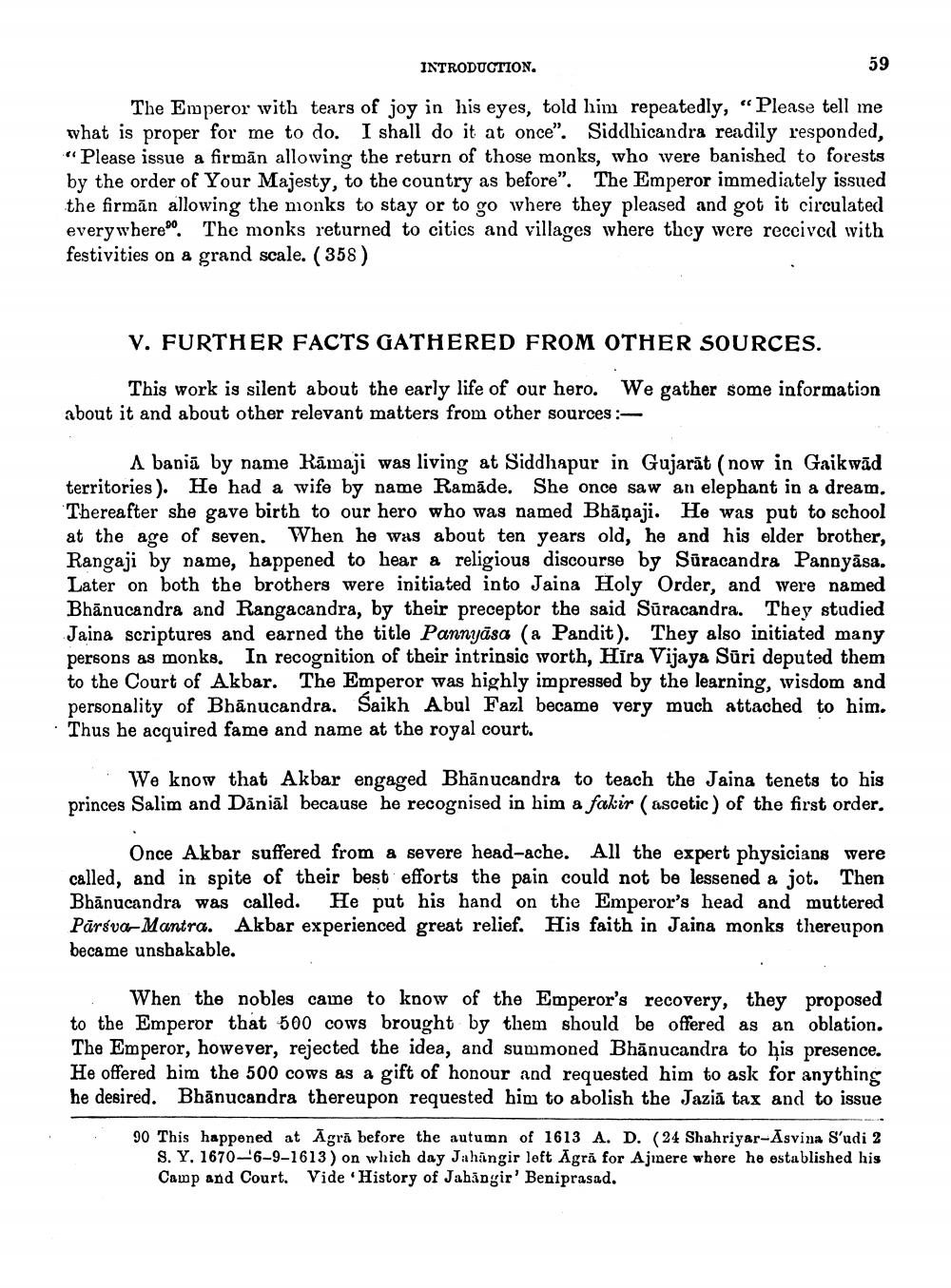________________
INTRODUCTION.
59
The Emperor with tears of joy in his eyes, told him repeatedly, “Please tell me what is proper for me to do. I shall do it at once". Siddhicandra readily responded, * Please issue a firmān allowing the return of those monks, who were banished to forests by the order of Your Majesty, to the country as before". The Emperor immediately issued the firmān allowing the monks to stay or to go where they pleased and got it circulated everywhere. The monks returned to cities and villages where they were received with festivities on a grand scale. (358)
V. FURTHER FACTS GATHERED FROM OTHER SOURCES.
This work is silent about the early life of our hero. We gather some information about it and about other relevant matters from other sources :
A banjā by name Rāmaji was living at Siddhapur in Gujarät (now in Gaikwād territories). He had a wife by name Ramāde. She once saw an elephant in a dream. Thereafter she gave birth to our hero who was named Bhāņaji. He was put to school at the age of seven. When he was about ten years old, he and his elder brother, Rangaji by name, happened to hear a religious discourse by Süracandra Pannyása. Later on both the brothers were initiated into Jaina Holy Order, and were named Bhānucandra and Rangacandra, by their preceptor the said Sūracandra. They studied Jaina scriptures and earned the title Pannyāsa (a Pandit). They also initiated many persons as monks. In recognition of their intrinsic worth, Hira Vijaya Sūri deputed them to the Court of Akbar. The Emperor was highly impressed by the learning, wisdom and personality of Bhānucandra. Saikh Abul Fazl became very much attached to him. Thus he acquired fame and name at the royal court.
We know that Akbar engaged Bhānucandra to teach the Jaina tenets to his princes Salim and Dāniāl because he recognised in him a fakir (ascetic) of the first order.
Once Akbar suffered from a severe head-ache. All the expert physicians were called, and in spite of their best efforts the pain could not be lessened a jot. Then Bhānucandra was called. He put his hand on the Emperor's head and muttered Pārsva-Mantra. Akbar experienced great relief. His faith in Jaina monks thereupon became unshakable.
When the nobles came to know of the Emperor's recovery, they proposed to the Emperor that 500 cows brought by them should be offered as an oblation.
The Emperor, however, rejected the idea, and summoned Bhānucandra to his presence. He offered him the 500 cows as a gift of honour and requested him to ask for anything he desired. Bhānucandra thereupon requested him to abolish the Jaziã tax and to issue
90 This happened at Agrā before the autumn of 1613 A. D. (24 Shahriyar-Asvina S'udi 2
S. Y. 1670-6-9-1613) on which day Jahangir left Agră for Ajinere where he established his Camp and Court. Vide History of Jahangir' Beniprasad.




